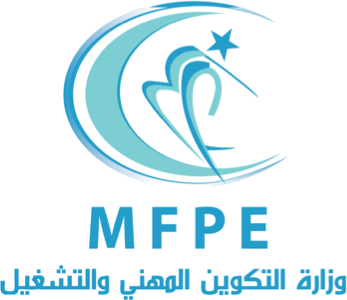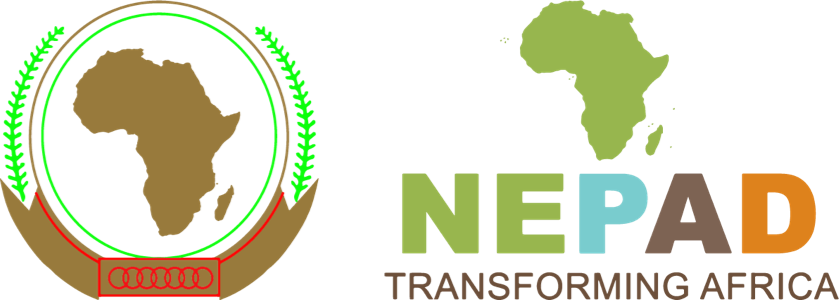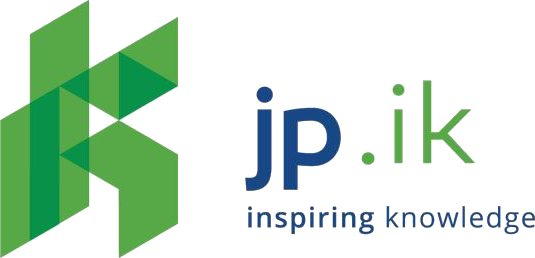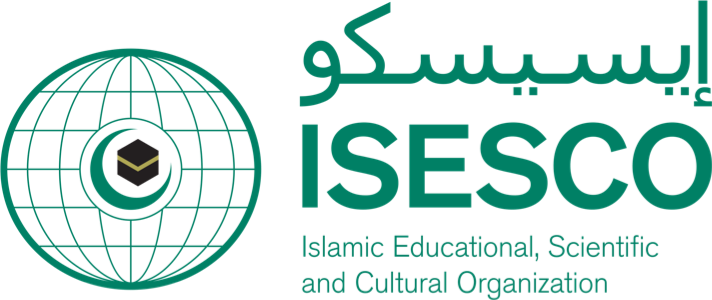HRST Commissioner Highlights the Role of ICT in Education, at the Sustainable Education Meeting in New York
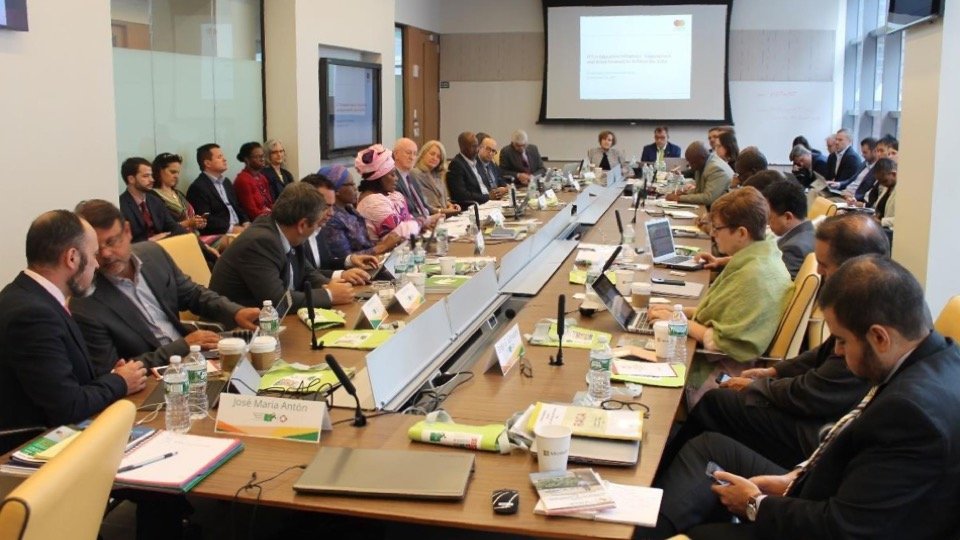
New York, United States of America, September 21st and 22nd, 2017 – An African Union Commission delegation led by the Commissioner for HRST H.E. Prof Sarah Anyang Agbor and composed of Dr Beatrice Njenga, Head of Education Division and Mr. Kokou Sename Djagadou, project officer in the Human Resource and Youth Development Division participated in a two day meeting on Education for Sustainable Development. The meeting organized by UNESCO Global Action Program for Sustainable Development and the Millennium @EDU SUSTAINABLE EDUCATION in partnership with the Global ESchools Initiative (GESCI) aims at sharing experiences on new developments across the world to promote education and create a platform for experience sharing among key actors in the education sector.
The Commissioner for HRST H.E. Prof Sarah Anyang Agbor gave a keynote presentation at the session facilitated by the Chief Executive of GESCI, Mr. Jerome Morrissey. The Commissioner highlighted that Agenda 2063 recognizes Science, Technology and Innovation as one of the major drivers and enablers for achieving development goals. She referenced the Science, Technology and Innovation Strategy for Africa (STISA 2024) which aims to facilitate the transition of Member States into innovation led knowledge based economies as the continental framework that will foster technological innovation toward available, accessible and affordable education. The Continental Education Strategy for Africa was also highlighted, indicating that ICT is recognized as a key enabler for enhancing access and quality, while also appreciated as a skill area that is imperative for 21st century skills that will contribute to harnessing the youth demographic dividend. Implementation of CESA is through Thematic Clusters of partnerships, including such themes as “STEM Education”, “Teacher Development” and “ICT in Education”. GESCI coordinates the “ICT in Education” Cluster.
Participants at the meeting presented their experiences on improving learning conditions of students and teachers. The presentations covered among others the use of internet to promote access to wifi in school (an experience from Lesotho), the use of Information and Communication Technology to promote entrepreneurship and employment for young people not in education, employment nor training, and a joint initiative led by Microsoft on affordable and rugged laptop for students. Other presentations were made by representatives from the AUC, member states such as Uganda and Lesotho, companies such as Microsoft, Global Partnership for Education (GPE), Mastercard Foundation, Intel Corporation, The Global e-Schools and Communities Initiative (GESCI), Consortium for School Networking (CoSN).
On the margin of the event, H.E. Prof Sarah Anyang Agbor held bilateral meetings to strengthen AUC’s partnership toward the realization of the Continental Education Strategy for Africa (CESA 16 - 25). One of these meetings was held with the CEO of Global Partnership for Education (GPE) Ms. Alice Albright. During the meeting the AUC and the GPE agreed to formalize their partnership for education in Africa and work toward creating a favorable learning environment for all. Another bilateral meeting was held with Jerome Morrissey of GESCI: GESCI requests partnership MOU signing; and support for upscaling several ICT in Education Initiatives including Digital Schools Initiative; Digital Skills for Youth Entrepreneurship; Women Leadership in ICT.
For more information contact:
- Beatrice Njenga | Head of Division – African Union Commission | NjengaB@africaunion.org
- Kokou Sename Djagadou | Project Officer – African Union Commission | SenameK@africa-union.org
About the African Union
The African Union (AU) is a continental union consisting of all 55 countries on the African continent. It was established on 26 May 2001 in Addis Ababa, Ethiopia, and launched on 9 July 2002 in South Africa, with the aim of replacing the Organization of African Unity (OAU). The most important decisions of the AU are made by the Assembly of the African Union, a semi-annual meeting of the heads of state and government of its member states. The AU's secretariat, the African Union Commission, is based in Addis Ababa. In 2013, as part of its 50th Anniversary, the AU adopted Agenda 2063, a blueprint for achieving an Africa that “an integrated, prosperous and peaceful Africa, driven by its own citizens and representing a dynamic force in the global arena.” More information on the African Union and its work can be found at www.au.int


